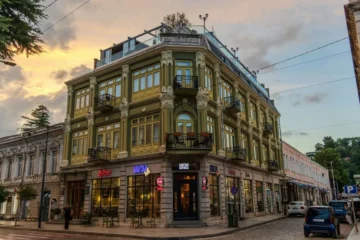Dreaming of sipping espresso in Italy, picking grapes in France, or working at a ski resort in Austria—all while getting paid? A seasonal work visa might just be your ticket to living that Euro-fantasy (with a paycheck to match). In 2025, Europe continues to welcome seasonal workers from around the world, offering thousands of opportunities in agriculture, hospitality, and tourism. Whether you’re craving cultural immersion or just want to avoid racking up student loans, seasonal work abroad is an adventure with financial perks.
Let’s break it down.
Key Takeaways
What Is a Seasonal Work Visa and Who Is It For?
Think of a seasonal work visa as a short-term work permit designed for specific times of the year when demand for labor spikes. Usually, this means harvest season, holiday tourism booms, or ski season rushes. These visas are typically valid from a few weeks to several months, depending on the country.
You’re eligible if:
- You’re a non-EU citizen (yep, this one’s made for travelers).
- You have a valid job offer in a participating country.
- You meet the basic requirements like health insurance, proof of accommodation, and a clean criminal record.
This visa is ideal for students on a break, recent graduates, working holidaymakers, or anyone craving a work-travel balance.
Top European Countries Offering Seasonal Work Opportunities in 2025
Several EU countries roll out the red carpet (and the paperwork) for seasonal workers each year. Here’s where to look in 2025:
🇮🇹 Italy
Italy’s Decreto Flussi program allocates thousands of seasonal work permits each year. Most jobs are in agriculture (think olive or citrus picking) or tourism roles in scenic hotspots.
🇫🇷 France
France’s seasonal worker permit lets you work up to six months a year, mainly in grape harvesting, campsite hosting, or resort jobs. Bonus? You can return next year.
🇩🇪 Germany
Known for its efficiency (and asparagus festivals), Germany offers 90-day seasonal work visas, particularly during spring and summer for agriculture and hospitality.
🇪🇸 Spain
From picking strawberries in Huelva to serving tapas in Marbella, Spain’s agricultural and tourism sectors are major employers. Work contracts are mandatory before applying.
🇦🇹 Austria
If snow-covered alpine resorts or summer farms sound tempting, Austria hires seasonally across the year—ski instructors, hotel staff, farmhands, you name it.
🇵🇹 Portugal
Portugal’s sunny coastlines and vineyards make it a hotspot for seasonal workers. Grape picking in the Douro Valley or hospitality gigs in the Algarve are popular choices.
🇭🇷 Croatia
Tourism booms during the summer months, creating demand for waitstaff, hotel clerks, and tour guides—especially along the Adriatic coast.
Most In-Demand Jobs for Seasonal Workers This Year
Wondering what kinds of jobs are available? Here’s what’s hot:
- Agriculture: Fruit picking, grape harvesting, planting, and packing.
- Hospitality: Hotel staff, kitchen assistants, servers, bartenders.
- Tourism: Resort workers, tour guides, campsite attendants, and event helpers.
- Winter sports: Ski instructors, lift operators, chalet hosts (mainly in Austria, France, and Italy).
Also Read: How to Get Permanent Residency in Canada: Express Entry, PNP & More Explained (2025 Guide)
If you’ve got basic people skills, a tolerance for unpredictable weather, and don’t mind getting your hands dirty, there’s a job out there for you.
How to Apply: Key Documents and Requirements
Here’s where things get real. While each country has its quirks, most applications follow a similar rhythm:
- Secure a job offer from an employer in the host country.
- Collect your documents:
- Valid passport
- Signed an employment contract with a salary and working hours
- Health insurance covering the full duration of your stay
- Proof of accommodation (sometimes provided by the employer)
- Clean criminal background check
- Apply through the country’s embassy or consulate in your home country.
- Wait. Processing times range from 30 to 90 days, depending on the country.
Tip: Start early. Most countries open applications a few months before peak season hits.
Benefits of Seasonal Work: Earning, Living, and Exploring Europe
Seasonal work visas aren’t just a way to earn money—they’re your passport to living like a local. Here’s why they’re worth considering:
- Get paid in euros while enjoying a lower cost of living in rural or seasonal regions.
- Live abroad legally with the flexibility to explore during your off-days.
- Build international work experience and language skills.
- Network with fellow travelers and locals—it’s more than a job, it’s a cultural deep dive.
Plus, you’re not just passing through as a tourist. You’re part of the rhythm of the place.
Challenges to Consider Before Applying
As dreamy as working in Tuscany or Bavaria sounds, it’s not all sunsets and strudel. Here are a few things to watch out for:
- The visa duration is short, so you need to plan accordingly.
- Language barriers can make daily life (and work) tricky, especially in rural areas.
- Accommodation can be basic—shared rooms or dorms are common.
- Work can be physically demanding (hello, 10-hour shifts in the fields).
Make sure to understand your contract, check employer reviews (yes, Google them), and know your rights as a worker.
Tips for a Successful Seasonal Work Experience Abroad
Want to make the most of your European work adventure? Keep these in mind:
- Apply early—popular destinations fill up fast.
- Learn a few basic phrases in the local language. It goes a long way.
- Double-check your documents, especially health insurance.
- Budget smartly—don’t expect luxury, but do save a little.
- Be open-minded and adaptable. Seasonal work can be unpredictable but rewarding.
And most importantly? Say yes to new experiences. Whether it’s trying escargot or dancing at a harvest festival—this is your chance to work, earn, and live the European way.
Final Thoughts
Seasonal work in Europe is more than a visa stamp—it’s a life chapter waiting to be written. Whether you’re a student on a gap year, a digital nomad craving a fresh vibe, or someone simply in need of a new perspective, a seasonal work visa lets you blend earning, learning, and exploring into one epic adventure.
So, are you packing sunscreen for Portugal or gloves for the Alps?





